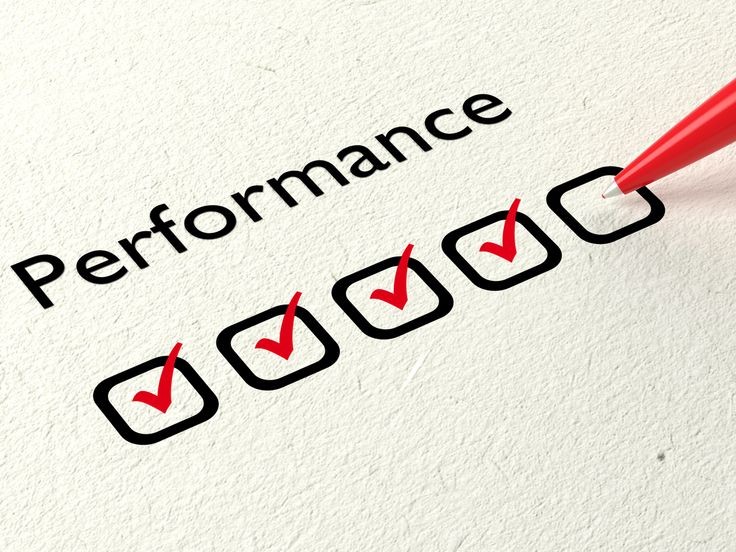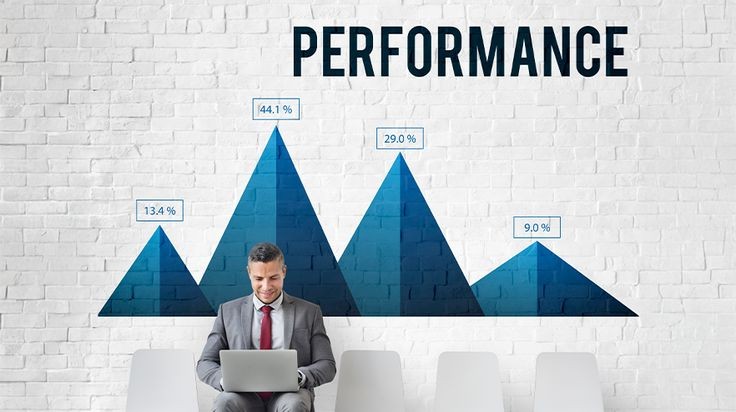In today’s competitive Nigerian business landscape, HR is no longer just about hiring and firing – it’s about driving strategic growth and success using performance management system. A standard performance management system (PMS) helps Nigerian organizations connect employee efforts with business objectives. When properly implemented, it improve employee commitment, productivity and growth. In sectors such as fintech, manufacturing and telecom companies that align HR systems with business outcomes- gain a competitive edge. This article explains how to implement a Performance management in Nigeria Businesses, offering practical guidance for HR professionals and business owners.
Understanding Performance Management Systems in Nigerian Businesses
A performance management system (PMS) is an organized system that help organization set clear goals, track progress and provide feedback to team members and concerned personnel. This process ensures employees understand expectations and how their work contributes to company goals.
In another simple sense, PMS sets clear job roles and targets, schedule regular reviews and guides professional development. It clarifies expectations, fosters accountability and supports staff retention.
Key Components:
- Align goal-setting with business priorities.
- Regular check-ins or coaching sessions.
- Formal review meetings (annual or quater).
- Development plans and rewards linked to outcomes.
Common Challenges in Implementing Performance Management Systems in Nigeria
Introducing a performance management system in Nigerian businesses often poses several hurdles and below are the likely challenges:
Goal Misalignment: establishing individual goals with corporate strategy can be difficult. Without clear guidance, departments may pursue conflicting aims.
Insufficient Feedback: Managers with loads of task may lack training or time for regular discussions or exchange of ideas, leaving employees uncertain about improvement areas.
Lack of Transparency: Unclear rules and processes make staff sees performance appraisals as unfair, thereby leading to mistrust in management strategies.
Cultural Barriers: In some workplaces, rigid hierarchies and strict rules silence employees, this hinder open communication and innovative ideas..
Resource Constraints: Many SMEs lack HR expertise or budget. Manual tracking can be inconsistent and prone to error.
Awareness of these challenges is vital. The following sections suggest strategies to address Performance management in Nigeria Business effectively.
Strategic Human Resource Management in Nigeria
Strategic HR Nigeria involves treating HR as a partner in achieving business goals, rather than merely an administrative unit. It ensures workforce actively drive organisational priorities.
Align HR Objectives with Business Goals: ensures that HR strategies directly support and drive the organization’s overall mission, vision, and objectives. For instance, if a telecom firm plans network expansion, HR defines recruitment and training targets to support that growth.
Measure HR Performance: Create performance measures like staff turnover, hiring time, and ensure training completion that match project goals.
Integrate Talent Management: Link recruitment, learning and development, and succession planning to strategic plans.
Data-Driven Decisions: Collect and analyse HR data to identify trends—such as skill gaps in manufacturing teams—that might affect business outcomes.
For guidance on evidence-based HR practices, the Chartered Institute of Personnel Management (CIPM) Nigeria provides valuable standards and frameworks for Nigeria SMEs
By treating HR initiatives as strategic projects, Nigerian businesses ensure their performance management system advances company priorities.
Implementing a Performance Management System in Nigerian Companies
Here is a concise, step-by-step approach to how to implement a performance management system in Nigerian businesses:
1. Secure Leadership Buy-In
Present a clear business goal. Demonstrate how a PMS can boost productivity, reduce turnover costs and support growth plans. Executive support is vital for resources and cultural change.
2. Define Clear Objectives and KPIs
Work with department heads to break down the company’s strategic vision into actionable, trackable goals using the SMART framework. For example, in a healthtech startup aiming to increase digital consultation uptake, a relevant team goal could be “onboard 500 new doctors by end of Q2” or “reduce appointment booking time by 20% within three months.”
3. Communicate and Train
Explain the PMS process to all staff. Hold workshops for managers on giving feedback and coaching skills. Emphasize that the system aims for development and recognition, not mere criticism.
4. Choose Suitable Tools
For SMEs, simple tools such as Google Sheets or basic HR apps can track goals and reviews. Larger organisations may adopt HRIS platforms (e.g. SAP SuccessFactors or local solutions like SeamlessHR). Ensure tools fit the budget, IT capacity and comply with data privacy requirements.
5. Set Up Regular Feedback Loops
Move beyond annual reviews. Schedule monthly or quarterly check-ins. These short sessions catch issues early and keep employees on track. For example, a manufacturing team lead may review production targets monthly and address training needs promptly.
6. Link Performance to Rewards and Development
Tie positive outcomes to bonuses, promotions or training budgets. If data shows certain employees consistently meet targets, recognise them visibly. Use performance data to identify skill gaps and organise targeted training sessions, such as digital skills programmes for telecom staff.
7. Monitor and Revise
Gather feedback on the PMS itself. Track adoption rates, review completion and employee satisfaction. Adjust processes, criteria or tools as needed. Stay flexible: Nigeria’s business environment can change rapidly, so update goals and methods accordingly.
Adopting this approach help with a clear, fair and growth-oriented performance management system.
Performance Appraisal in Nigerian Businesses: Systems and Review Processes
Performance appraisal is a formal evaluation part of a performance management system, but annual reviews alone aren’t enough. Below are the typical Steps:
- Goal-Setting: At the start of the cycle, there must be agreed objectives.
- Mid-Cycle Check-In: A brief review (quarterly or semi-annual) to update goals or address obstacles.
- Self-Assessment: Employees reflect on achievements and challenges of the system during its time frame.
- Manager Assessment: Managers rate performance against clear criteria.
- Appraisal Meeting: Discuss performance, provide feedback and set new targets.
- Documentation: Record outcomes and link to rewards or development actions.
- Moving Toward Continuous Appraisal: Many Nigerian firms now adopt ongoing feedback. Rather than waiting for year-end, managers provide prompt coaching sessions when needed. This approach keeps performance discussions timely and relevant.
- Fairness and Transparency: Clearly defined criteria and open communication help employees trust the process. For example, in a Lagos-based service company, sharing the appraisal checklist with all staff improved acceptance and reduced disputes.
Combining formal appraisals with continuous feedback enables Nigerian businesses to maintain clarity, fairness and agility in performance reviews.
Aligning Performance Management with Business Strategy
True impact arises when performance metrics reflect strategic priorities. Aligning HR systems with business outcomes involves:
Cascading Goals: Company strategy flows down to individual KPIs. If a manufacturing firm aims to reduce production costs by 10%, teams set targets such as “improve line efficiency by 5%”. Each employee’s objectives relatively tie back to that aim.
Meaningful Metrics: Choose parameters that measure what really matters in employee performance. A fintech may track “number of successful daily transactions” for operations staff and “feature delivery timelines” for developers.
Clear Communication: Managers explain how each role influences business success. This gives purpose and motivates employees.
Regular Review of Alignment: Periodically revisit goals to ensure they remain relevant as market conditions evolve.
When alignment is strong, everyone works toward the same objectives. Misalignment can waste effort on tasks that do not support core strategy.
Performance Management Tools for Nigerian HR Teams
Various tools can support a PMS in Nigerian organisations:
Cloud-Based HR Platforms: Solutions such as SAP SuccessFactors or BambooHR offer goal-tracking and review modules. Local providers (e.g. SeamlessHR) cater to African contexts, including compliance with local regulations.
Spreadsheets and Dashboards: Smaller firms may use Google Sheets or Excel with simple dashboards to monitor KPIs. These are low-cost and flexible.
Feedback Apps and Surveys: Tools like Google Forms or pulse-survey apps help gather regular input from employees. They can support 360-degree feedback where feasible.
Collaboration and Project Tools: Platforms such as Microsoft Teams or Asana can link tasks with goals and record informal feedback.
Emerging AI Tools: Some organisations explore AI-driven analytics to predict performance trends or guide development plans. While still developing in Nigeria, these tools may become more accessible soon.
When choosing tools, consider cost, ease of use, local support and data security. The aim is to simplify processes, not to complicate them.
Performance Management Best Practices for Nigerian Businesses
Across industries, the following best practices help Nigerian companies improve performance management:
Align with Strategy: Ensure objectives at every level link back to business priorities.
Integrate Continuous Feedback: make continuous feedback an intregal part of the system. Schedule informal check-ins alongside formal reviews to keep discussions.
Use Objective Criteria: Define KPIs and competencies clearly so employees understand evaluation measures.
Train Managers as Coaches: Equip leaders with skills to give constructive feedback and support development.
Leverage Data: Analyze performance trends to decide on training, promotions, or resource allocation.
Link to Rewards and Development: Recognise high performers and address skill gaps with targeted training.
Promote Transparency: Share criteria and aggregated results where appropriate to build trust.
Involve Employees: Engage staff in goal-setting and review discussions to increase commitment.
Adapt for SMEs: Keep processes simple and flexible for smaller firms; consistency and fairness matter more than complexity.
Stay Agile: Be ready to revise goals and methods as the business environment shift.
These practices foster a culture of continuous improvement and ensure Performance management in Nigeria Business drives tangible results.
Also from us, read Talent management loopholes for better understanding of performance management.

Future Trends in Performance Management for Nigerian Businesses (2025 and Beyond)
Looking ahead, Nigerian HR teams should monitor these trends:
Continuous and Agile Reviews: Regular, ongoing feedback will replace traditional annual performance reviews, thereby giving room for more flexible and adaptive assessments.
Digital Transformation: going digital with tools such as cloud-based platforms and automation will streamline performance processes.
AI and Analytics: Data-driven insights and predictive tools will guide decisions as they become more accessible.
Employee Well-Being: Employee well-being metrics, such as work-life balance and mental health indicators, will be incorporated into performance evaluations.
Skills Development Focus: Reviews will increasingly identify skill gaps, linked to targeted learning initiatives.
A McKinsey & Company insight on performance management highlight global organization are evolving with performance maangement.
Regulatory Shifts: Evolving labour laws and remote-work norms will shape PMS design.
Preparing for these changes helps Nigerian businesses remain competitive and retain talent.
Conclusion: Driving Business Growth Through Strategic Performance Management
A well-designed performance management system is crucial for Nigerian businesses to align employee contributions with strategic goals, driving growth through clear objectives, continuous feedback, and tailored development.
By integrating people metrics with business strategy and focusing on well-being, skills development, and flexibility, HR teams can help organizations thrive in a rapidly changing work landscape.


